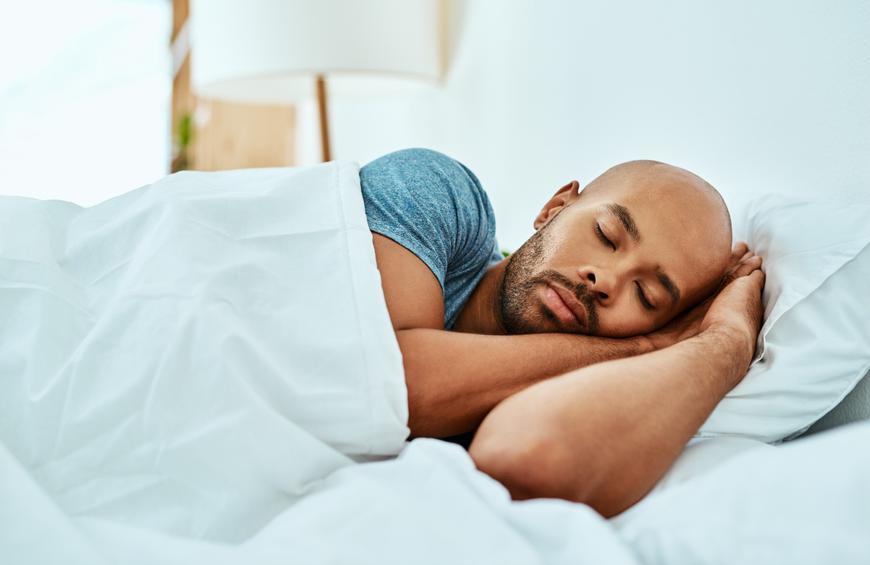The bickering about bed temperature can sometimes lead to a cold separation when one partner turns the thermostat much lower than the other would like. But sometimes, it’s not so easy to find a good compromise and keep both partners happy.

One survey suggests that 25 percent of couples said they fight or argue about how hot or cold their bedroom is at night. And we know that this is just the tip of the iceberg!
Many more people think that their bedroom is too hot or cold than actually say something about it. Let’s not forget that if one person tells us that it bothers them, it’s not because they enjoy being uncomfortably hot or cold.
Fortunately, couples can now buy bed fans, which can circulate cold in the bed to make it more comfortable. But what causes the discomfort in the first place? Answer: humidity.
What Is Humidity?
Humidity is the amount of water vapor in the air. The most common way to measure it is with a hygrometer, humidity gauge, or weather station that records current air temperature and relative humidity.
You can also check the dew point. When the temperature falls to the dew point, water vapor will condense into liquid water (and fog, dew, or cloud droplets) on surfaces like your car windshield. When you’re trying to find out what’s wrong with your humidifier or dehumidifier, however, you need to know only how it affects relative humidity.
Now, what is relative humidity (RH)? It indicates what percentage of moisture would be required for an air sample at a given temperature to reach saturation. Saturation occurs when the air cannot hold all the moisture present at that temperature, and water vapor begins to condense into liquid water.
The RH is actually a ratio of vapor pressure, which is the pressure exerted by water molecules in gaseous form, to actual vapor pressure of pure water at a specific temperature. At 100 percent relative humidity, there’s enough moisture in the air to produce wet-bulb thermometer readings that match dew point temperatures exactly.
If you can read both figures on your hygrometer, the barometric pressure reading should also be relatively unchanged from previous days or weeks if you live in an area with consistent weather patterns (at least between seasons).
RH is measured using dew point, but it’s the opposite of dew point (59 degrees F) because RH reaches 100 percent before dew point can drop to that level. The more water vapor in the air, the higher the relative humidity and vice versa. This makes sense when you consider that warmer air can “hold” more moisture than cold air, so increasing atmospheric water content will raise both measurements equally until they reach 100 percent together.
How Humidity Affects Sleep
Sleeping in a humid or moist environment can cause irritation and discomfort to some people. The effects on sleep vary from person to person, depending on the sleeping conditions and the person’s unique biological makeup.
One of the most common complaints about sleeping in a humid environment is nasal congestion and mucus formation. Sleepers with asthma find an increase in symptoms due to humidity because humidity can make breathing more difficult.
For other people, increased moisture and humidity increases comfort and reduces nighttime awakenings due to dry mouth or throat irritation. Also, individuals who live in very arid climates actually need extra moisture during sleep because indoor heating systems often cause indoor air to be arid during colder months.
You must know yourself best. If you have trouble breathing or your mouth and throat feel very dry at night, a drier bedroom environment might be better for your health.
Sleeping in a humid environment can also interfere with sleep by causing clothes to stick to the skin uncomfortably (in hot and sweaty situations), obstruction of airflow through the nose, forehead perspiration, exacerbating allergies or asthma, or increased risk of developing respiratory problems. A drier room is often recommended for these conditions.
Lastly, sleeping in a humid room can also cause damage to paint and wallpaper and encourage the growth of mold, dust mites, and even bed bugs. Humid air encourages these organisms to grow. This causes allergies or respiratory problems for certain types of people. A drier bedroom environment might be better for your health if you suffer from such conditions.
Even so, some people actually sleep better when the air is slightly moist because it prevents their sinuses from drying out during sleep. Also, keep in mind that city climates tend to be more humid than rural areas due to large bodies of water (oceans, lakes). If you live in a coastal area and own a home near bodies of water (oceanfront homes, for example), you might actually need the air to stay humid while you sleep at night due to the higher concentration of moisture in your home’s air.
Humidity can be a bummer, especially when you’re trying to get a good night’s sleep. But know that you don’t have to suffer from it. You have many options available, so you can rest easy (no pun intended).